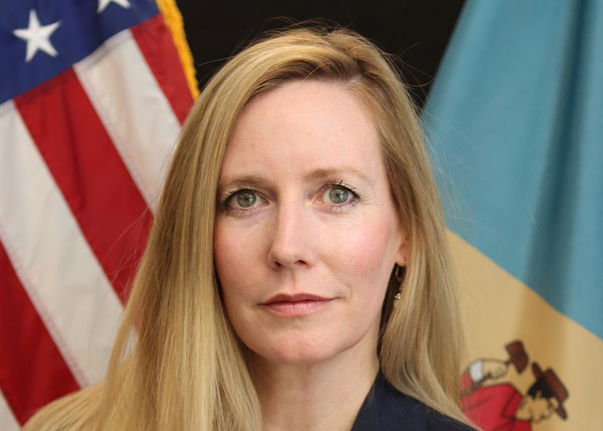I met Colleen Davis, the State Treasurer for Delaware, when we were on a panel together at a conference earlier this year. We stayed in touch based on a range of mutual interests, including sustainable investing. I saw her again at a conference in Boston in June where she informed me that she was launching a run for Congress. I asked if she’d be willing to do an interview with me. I told her that it would be good to highlight her pragmatism when it comes to economic issues as well as their environmental and social impacts. She excitedly agreed.
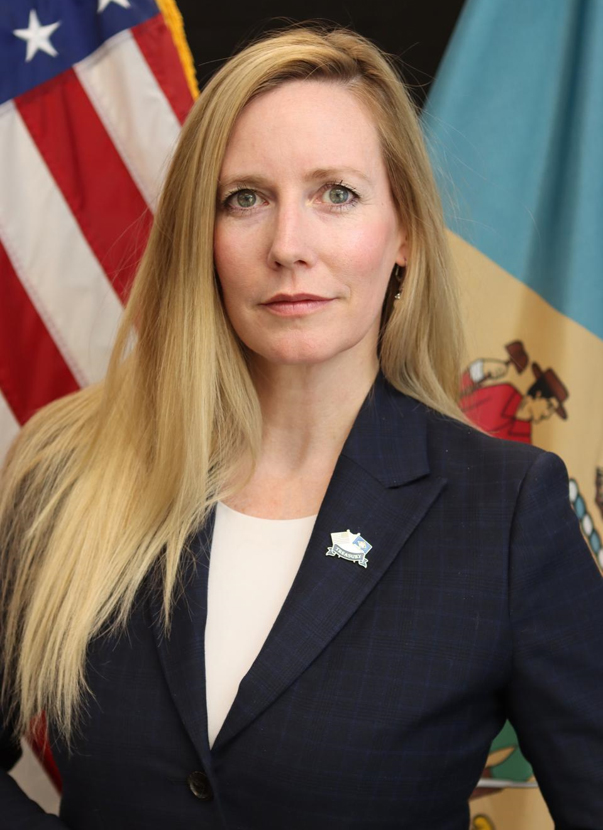
Colleen Davis, State Treasurer of Delaware
Eccles: Colleen, thanks for taking the time to talk with me. I’ve never asked you about your childhood. What was it like growing up in Delaware?
Davis: It was wildly fun being the fourth born of eight kids and the first daughter. My father would come home from work shouting, “Where’s my only little girl”? My brothers each had their own tag lines, but I always felt mine was the most special. Then once my sister was born, we shared it. I loved finally having a sidekick!
My life’s journey actually began in Baltimore, MD where I was born. We were compelled to move to Delaware after my parents’ business collapsed due to the fraudulent activity of their business partner. We chose Delaware because my grandparents and great-grandmother were there and flourishing in thriving communities. My parents felt they would benefit from being close to family and the many opportunities that Delaware offers. They were absolutely right. My entire family is grateful for that fresh start.
Eccles: That must have been a strain on your parents’ marriage. How did your family attempt to rebuild?
Davis: My father has Crohn’s disease and was very ill at the time. Despite my mother’s legal background, practicing in Delaware was a hurdle that would take too much time for her to overcome. We needed income right away. So being an entrepreneur at heart, my mother started her own photography business using a high-quality camera she had received as a gift.
My father handled the logistics and developed the business strategy to all her creative ideas. Together, through their entrepreneurial spirit and hard work, they were able to feed all of us, keep a roof over our heads, and enable my siblings and me to thrive.
Eccles: What was your experience like in high school? Did you have any interests?
Davis: As someone who continually seeks new opportunities, I was involved in many different activities from music to a variety of sports. Soccer was my favorite. At the time, our school didn’t have a girls’ soccer team, so I played on the boys’ team for two years. Finally, after my sophomore year, I had had enough. I went to the school board with a petition with over 180 signatures and a cost analysis of what it would take to start a girls’ team. The board approved our request, and by my senior year, our fledgling team made it to the state championships. That was what really helped my college career become a reality.
Eccles: That’s interesting, the seeds of leadership and public service were planted. Were you a good student?
Davis: Like I said, I’m competitive. I really enjoyed school and being challenged by friends that were getting better grades or trying more interesting and challenging pursuits. I loved Science Olympiad and Math League for the creative problem solving that they required from each of us, as well as the social aspects and competitiveness they provided. An especially important person to me was my English teacher, Mrs. Adkins. She recommended me for the higher level of studies, Advanced Placement. That was all I needed: someone to believe in me. From then on, I worked incredibly hard to ensure the work I produced would be worthy of her recommendation.
Eccles: Where did you go to college? Why that school and what field of study?

DNA complex spiral structure , medical, science, genetic biotechnology, gene cell concept ,3D rendering (Photo: iStock)
Davis: I went to Philadelphia University, now Thomas Jefferson University for Molecular Biology. Although I got some financial aid I did have some tuition and board to cover on my own, so I worked as an EMT driving ambulances in Philadelphia. I also taught bartending classes at the Mainline Center for Bartending.
Eccles: Why did you not pursue an education at one of the Ivy League schools, considering you wanted to study molecular biology and you were such a good student?
Davis: I was applying to schools on my own. I went to a rural high school in southern Delaware that had limited resources and, frankly, no one ever planted that thought in my head. Actually, I remember the disciplinary officer calling me to the office during my senior year and ranting about how I had been late to school for the last 13 days straight. He finally asked me to explain myself. I told him my father was admitted to Johns Hopkins University Medical Center to have a cancerous kidney removed and that I was responsible for getting my younger siblings onto their respective elementary and middle school buses. Consequently, I had little time left to drive my brother and meme to the high school before the opening bell.
Eccles: Wow, that’s a lot to be dealing with as a teenager.
Davis: It was a tough time for all of us, worrying about my father’s survival and trying to hold down the fort.
With little guidance as to which schools I might apply, I did what I could. I filled out the FAFSA form to the best of my ability and brought it to my father’s bedside for any corrections and his signature.
Eccles: After graduating from college what did you do from there?
Davis: I worked for a biologics company for just under a year and knew it was not for me. I knew the lab was exciting for a number of reasons, but it also entailed hours of recreating the same thing over and over. I’m someone who needs to work with a team; I thrive around people.
So, I reapplied to my alma mater to enter their newly established Physician Assistant (PA) program.
Eccles: So you got a Master’s degree to become a PA. What was appealing about this? Did you ever think about becoming a doctor?
Davis: What drew me to becoming a PA was the ability to cross between specialties. I moonlighted in Vascular Surgery, Orthopedics, Obstetrics, and Gynecology. When physicians went on vacation, they asked me to cover their practice with another colleague as back-up. That meant I had to maintain good relationships with everyone and to perform at a stellar level always. It was a good precursor to politics because doctors, especially surgeons, have curious personalities.
Eccles: Did you have to acquire any additional, post-graduate education to move out of health care and into finance? If so, where? What was all of that like?

Doctors and nurses pulling hospital trolley (Photo: iStock)
Davis: Yes, I was enrolled at the University of Pennsylvania and had started working in the emergency room so I could have a more predictable schedule that would allow me to attend classes. Through my work in the ER, I realized that many of my patients were adversely affected by their financial circumstances. This was something I knew first-hand, given my own family’s struggles. But seeing the living-proof in others’ experiences was eye-opening. Our patients suffered from a wide variety of issues, both medical and financial. Without adequate financial resources, however, patients often couldn’t get the treatment they needed to get healthy. I wanted to find a way to fill that care gap.
Fortunately, that’s when Dr. Lillian Chiang, asked me to join a team she was cultivating with Dr. Thomas Schenk, from Princeton University. Dr. Schenk had obtained rights to a novel anti-viral for multiple sclerosis that he’d discovered, and he and Dr. Chiang were working together to obtain financial support that would allow them to get this new biologic to market.
I decided to leave my studies because I was already doing the work. I also had two toddlers and felt like I was not present for my family. I did obtain my certification in public finance, but never completed my MBA.
Eccles: So you went off to work for this company based in Princeton. What was that like, and what made you leave?
Davis: It was wonderful. We were using our combined talents and skills to create new ways in which to obtain financing, while also finding new pathways to get the anti-viral to market. It was a complex process, but we were able to raise some initial capital and then venture capital. After several years doing that, I left. Although I agreed to stay on in an advisory role, which I still perform today.
Eccles: Why leave after such success?
Davis: Once again, serendipity played a role. I began hearing from health-care colleagues that the Centers for Medicare and Medicaid were issuing new financial regulations that would result in a large-scale transformation of our health care system. That’s when I began consulting with health-care systems to develop their own Accountable Care Organizations and Collaborative Care Networks and negotiate exclusive contracts in Maryland and across Native American Reservations. During this time, I realized that we needed to do more d to ensure the efficacy of our health-care system and the people who rely on it. I couldn’t do it from that the vantage point of a consultant.
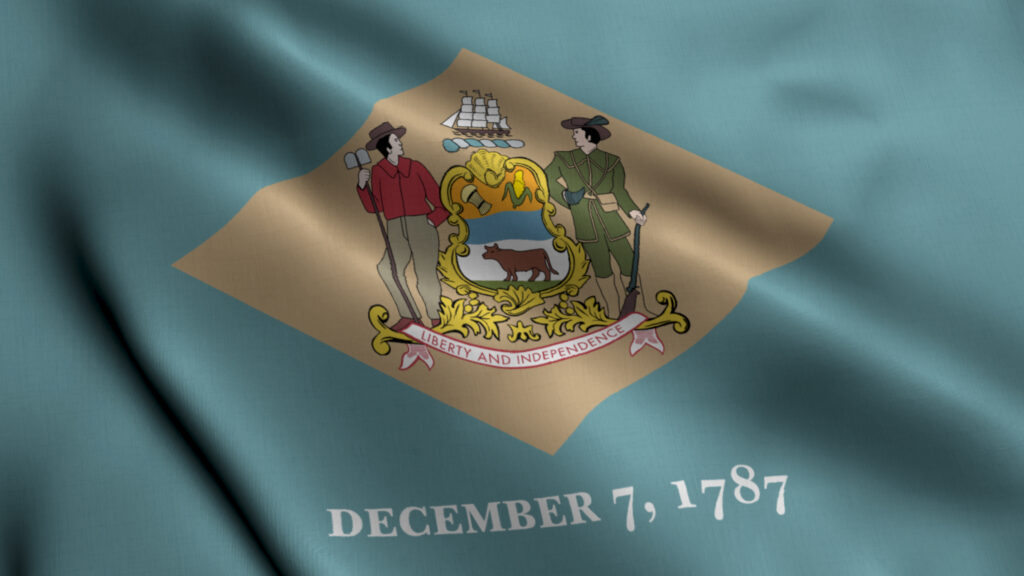
Delaware State Flag. Waving Fabric Satin Texture National Flag of Delaware 3D Illustration. Real Texture Flag of the State of Delaware in the United States of America. USA. High Detailed Flag (Photo: iStock)
Eccles: So that’s why you decided to run for office, right? What office did you first run for and why?
Davis: Correct. I saw so much economic disparity in our healthcare system and throughout all aspects of our society. I wanted to run to make a real difference in the lives of Delawareans of all backgrounds and economic ability. In the healthcare system, alone, the financial burdens have become so complex that it is challenging to comply with all of the regulations, care for people, and still keep the lights on. Finances control so much of our lives that we need leaders who have the skills, talent, vision, and guts to affect change that will benefit us all. I am such a leader; therefore, I decided to run for Delaware State Treasurer in 2018. It was the first, and to date, the only office for which I have run.
Eccles: Was there an incumbent or was it an open seat?
Davis: There was a popular Republican incumbent that was thought to be unbeatable. I dropped into the race just before the filing deadline on July 15th. Being an unknown political figure, I was outraised by 3:1 in campaign contributions. My candidacy was a longshot, to put it mildly!
Eccles: How does someone with no pre-existing political structure run for the first time? What was that like? How did you launch?
Davis: It was a footrace of retail politics at its best. I had to work against the name recognition of a well-liked, four-year incumbent. Fortunately, I received substantial party support from Senators Tom Carper and Chris Coons to Governor John Carney, his cabinet, and leaders of organized labor. I also learned the ABCs of politics from the best, including former Auditor Dennis Greenhouse, former State Senators Nancy Cook, and Margaret Rose Henry, as well as Governor Carper’s Chief of Staff, Ed Freel.
Eccles: What did your family think about you running for office?
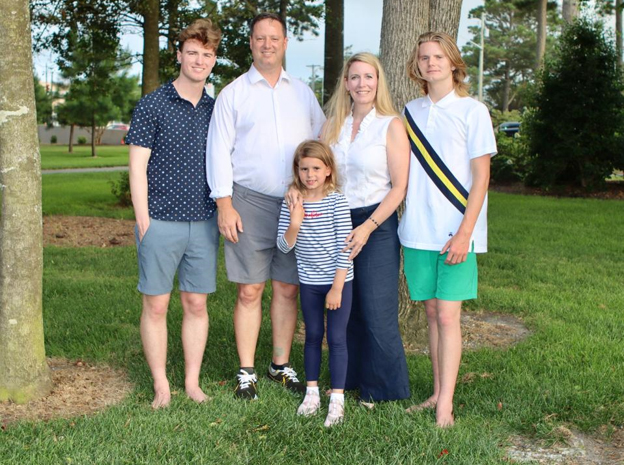
The Davis Family 2023 (from left to right) Liam, Anthony, Margaux, Colleen, and Desmond
Davis: My mother, a Democrat, was extremely proud. My father, who was the Chairman of the Sussex County Republican Party at the time, felt I needed to run. It was not an option, but a matter of faith. He was thrilled. He had been telling Republican party folks for some time that they needed to find a replacement for him as Chair. When I announced my candidacy, they quickly found someone else to step into his chair position for the party. My father felt as though the Republican Party had left him, not the other way around. Endorsing Trump, a thief in my father’s mind, was unforgivable.
My husband and kids had no idea what to expect but were in full support. It was challenging to raise three children, one of whom was still in diapers, run a consulting business, and campaign statewide. With the support of my family, friends, and political colleagues we succeeded!
Eccles: And just curious. What was the final vote?
Davis: I received 187,240 votes, a total of about 53% of voters that turned out.
Eccles: I know you got a lot of support from organized labor support. Why was that? Were there shared values? Are those values important in serving?
Davis: Organized labor was foundational to my family’s economic future in America. One of my grandfathers –notwithstanding his Irish immigrant status– became the President of the Ironworkers in Manhattan and the Bronx. Despite an untimely death, his wife and children were supported by the union until my grandmother’s death at 94 years old. In addition, five of my siblings are members of labor unions. I have a historic appreciation for the values of supporting others and ensuring optimal working conditions and livable wages. These precepts are a foundation for anyone’s economic future, as well as for ensuring we have a thriving workforce and, thus, a strong sense of community.
Eccles: What were the major accomplishments of your first term?
Davis: My focus has always been on ensuring that everyone has economic opportunities available to them. This foundation kept my effort concentrated on fiscal stewardship resulting in a stable tax structure for Delaware taxpayers, bolstering retirement readiness, and championing advancing education. I worked to improve banking availability in our banking deserts in low-income areas of our state. Since 2018 I have traveled all across this state and met with families and workers – many who are struggling just like mine did.
And I’m confident that we have made families’ lives better – from Dover to Dewey and Wilmington to Woodland. We’ve fought to put more money in working families’ pockets. And we’ve helped the vulnerable achieve greater financial security – from retirees benefiting from Delaware EARNS to ABLE savings accounts for the disabled, to helping the unbanked – especially communities of color. Real paths for folks from all walks of life to have financial security, upward mobility, and sustainable education and career paths right here in Delaware.
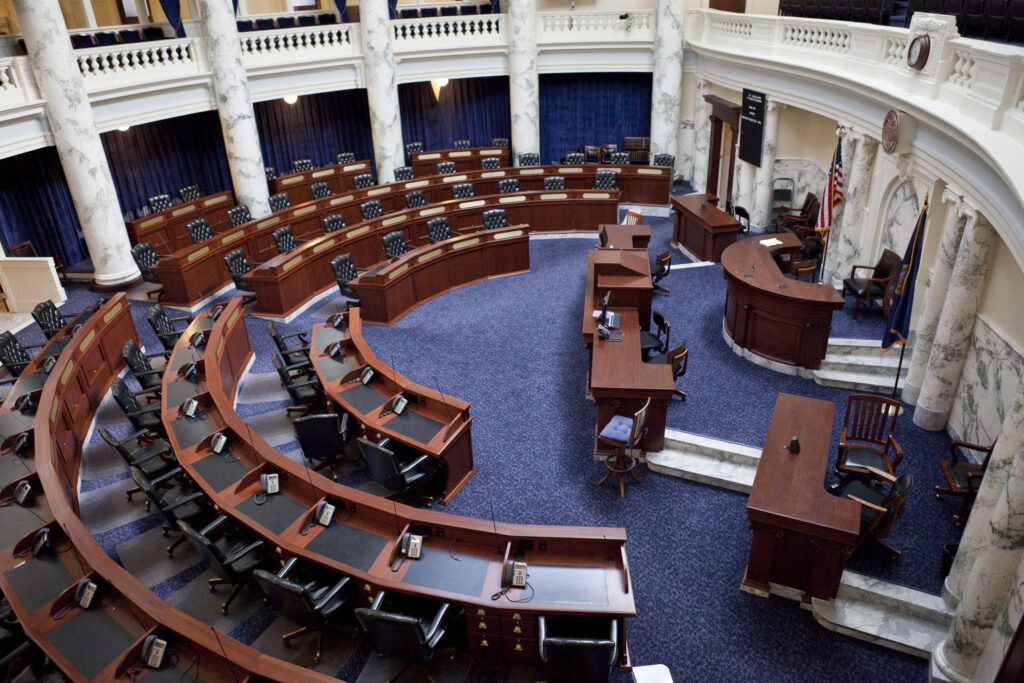
House of Representatives Chamber of the Idaho State Capitol Building in Boise, Idaho (Photo: iStock)
Eccles: Why are you running for Congress?
Davis: I am running for Congress because working families need a bigger voice in our federal government. As a mom, a woman, and as someone who really understands how it feels to have nothing, I know that I can go to Congress and fight for Delaware families. These are the people that create the crises my life’s work has been trying to solve. I run towards the problems because we need a representative that does care.
We need a representative who will protect abortion rights and women’s healthcare from those who want to rip it away. Who will protect our democracy from those who seek to destroy it. And who will protect our children, from combating climate change to getting illegal guns off of our streets once and for all. We need more people in Congress who care about these issues. I think my professional experiences in health, as the State’s Treasurer, give me a very unique skill set to apply to the challenges in Washington.
Eccles: I agree with you on the issues and your qualifications. Thanks for running for office and best of luck!
SUBSCRIBE TO OUR NEWSLETTER
Subscribe our newsletter to receive the latest news, articles and exclusive podcasts every week


